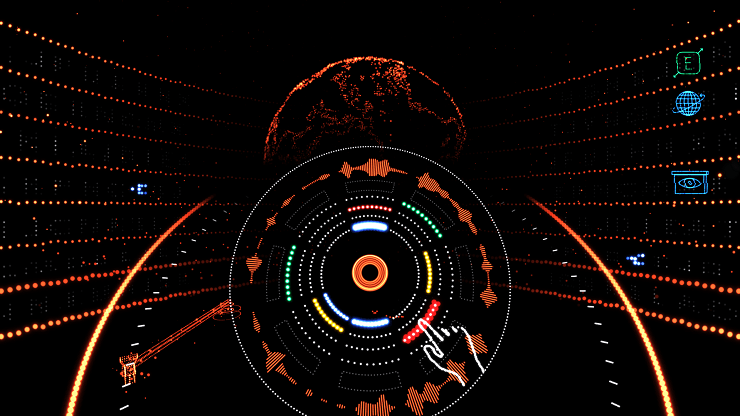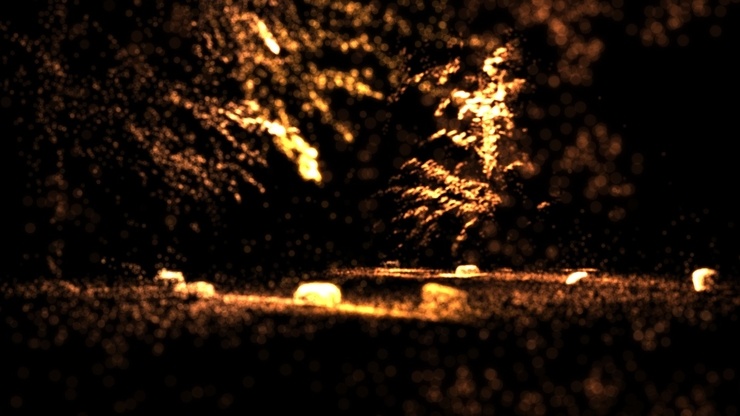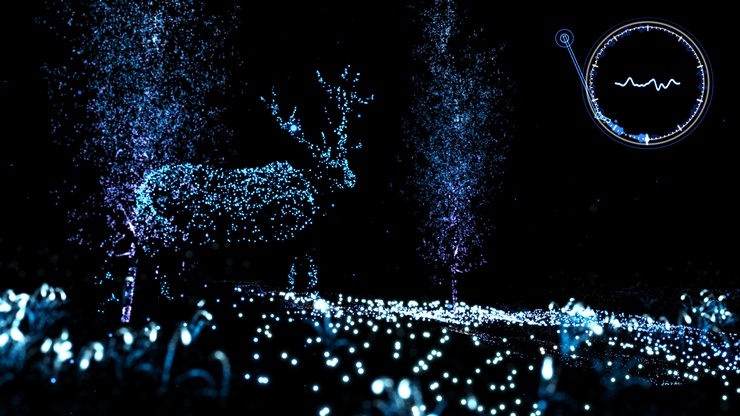Piece together a particle image of the Earth through curious puzzles and warping sound in A Light in Chorus.
Every so often, something comes along that is so exceptional that you can’t quite process it, but also can’t look away. The term for this is normally ‘Train Wreck’, but the negative connotation behind that is completely inappropriate when it comes to the beautiful A Light in Chorus. It’s a game which answers a question that I don’t believe many of us have ever stopped to ask: “What if you had to rebuild Earth-using only the contents of the 1977 Voyager Record?” And it is a truly extraordinary experience.
We often don’t notice when games transcend language, but when it is talked about, it is talked about as a form of accessibility. We say ‘It’s an easy to pick-up and play puzzle game’; they are almost always puzzle games. We comment on how they use colors or sound to get a message across, rather than text. We talk about how children could play these games because they have no reading requirement. A Light in Chorus is challenging, though, and it might also be the first time I would use the word ‘enigmatic’ right if I described it as such.
You explore slices of Earth put together through noise. As you walk through woodlands and other spaces, you find items you can interact with using the record player and other tools that you use to solve puzzles. At one point, I tweaked a signal to render a deer in the air. Another time, I used filters to identify a discarded drink can which opened up a new area to visit on Earth.
At no point did I feel like I had an adequate grasp on the puzzles. I knew that I could change resonance and pitch, and alter frequencies, but everything was extremely alien. This is exactly the point. Human’s communicate through sound and writing, sure, and the entity you play as does the same. However, the way that their mind works is different, they perceive things differently, and that is inherently awkward, but interesting, to players.
In many ways it reminds me of ‘What If Our World is Their Heaven? The Final Conversations of Philip K. Dick’ — ignoring the tough read of a man consumed by an apparent merging of his dreams, imagination, and life. In it, Dick posited a race of beings who dreamed of a new sensation in audio and music. These beings were not deaf – they simply had no understanding or instance of sound to begin to comprehend. There’s a stark parallel between that and A Light in Chorus, where the new sensation for the being which the player controls is that of vision.

A Light in Chorus is in development for PC, but you can find out more information on its website.



